![]()
Business Council for Sustainable Development in Hungary
1118 Budapest, Ménesi street 9/a.
Policies and statements
Privacy policy
Competition Law Statement
Code of Ethics
World Business Council for Sustainable Development (WBCSD) National Partner
It is important for BCSDH that all of its operations, including events, are carbon-conscious. In collaboration with GreenDependent Institute, we plant 40-50 native fruit trees annually in school gardens to offset the CO2 emissions that we cannot avoid, thus supporting sustainability on multiple levels. Recently, on behalf of the BCSDH Executive Board, BCSDH employees planted six fruit trees at the Göllner Mária Regional Waldorf High School in Budapest.


The TreeDependent program focuses on planting native fruit trees in educational and social institution gardens, which:

BCSDH aims to draw the attention of its members to the importance of carbon-conscious event organization. Learn more about organizing carbon-conscious events.
The decline of biodiversity and climate change must be considered together, as they are mutually influencing processes. The resulting challenges have now become financial and operational risks. Therefore it is important to understand what the business sector needs to do to foster for systemic change and speed up the process in order to protect and restore natural diversity, as well as promote climate adaptation.
This was the topic of this year’s BCSDH ‘Transform Talks’ CEO Roundtable discussion series, in which more than 40 company leaders participated and shared their thoughts on the topic, the events were led by Márta Irén, BCSDH’s managing director.

The importance of the situation is shown by the fact that in December 2022, a historic agreement was reached at the UN Biodiversity Conference (COP15) in Montreal. The majority of the ministers and government officials of the 190 countries participating in the event agreed that the protection of biodiversity should be a priority.

During the round table discussions, it emerged that the companies have the commitment, but so far they are less aware of the areas in which they need to act in order to protect and restore nature. At the same time, there are already companies that consciously assess the effects and opportunities on nature resulting from their own operations, and there are forward-looking business solutions that are also exemplary at the industry level.
It was also clearly seen that the involvement of experts is especially justified in this topic, since it is a special area where the impact must also be examined in a complex way. The built environment also has many opportunities for climate-neutral operation. It is also an important lesson that in many cases even a small change or innovation can bring significant results, which does not require a large investment, and can even bring savings.

The concrete results of the ‘Transform Talks’ CEO Roundtable discussions and the business recommendations regarding biodiversity will be presented at the BCSDH Business Lunch on 12th October, together with the company’s best practices.

Special thanks to the hosts of the events for providing the venue, the photo galleries can be viewed at the links below:
On behalf of the Prime Minister’s Office, Dóra Alexandra Arany, head of department, reported on the implementation of the project spanning more than three years, including the launch and work processes. She emphasized that, in addition to the three main priority areas, horizontal approaches play a very important role in the strategy, e.g. circular business models spanning the life cycle of education, research and development, and products and materials, which can further accelerate the circular transition covering the entire economy.

Péter Chrabak, the head of circular economy at Zoltán Bay Research Institute, which is a partner organization in the project, presented the main priority areas (biomass and food industry, construction industry and plastics) and the measures with a significant impact, which can be considered critical in terms of the transition to a circular economy in Hungary. He explained the quantified goals set until 2040 presented in the OECD report, which make Hungary’s future vision more tangible and facilitate its implementation.
The goals to be achieved by 2040:

The report was prepared on behalf of the Prime Minister’s Office, with the cooperation of the OECD Environmental Protection Directorate and the involvement of Hungarian stakeholders. You can read more about the OECD report here.
The presentations were followed by a panel discussion with the participation of our speakers, moderated by Dr. Bálint Horváth, CBRE’s Senior Sustainability Consultant. During the conversation, it was discussed to what extent the material use (DMC) of the Hungarian economy can be reduced as a result of the measures, and what the prospects are for increasing the use of degradable/renewable materials. Participants also had the opportunity to ask questions.
But what financing options do organizations have? Dóra Alexandra Arany’s presentation presented the indirect (KEHOP Plusz, GINOP Plusz, TOP Plusz, DIMOP Plusz and KAP Strategic Plan) and direct (LIFE, INTERREG) EU funds, the utilization of which can be of prime importance for companies in the circular economy in starting the transition.

Thanks to the sponsors of the Circular Economy Platform:

Social issues are receiving increasing emphasis in the business world, as growing inequalities carry systemic risks.
What can companies do to reduce social inequalities? What workforce trends should they prepare for in the near future? How can we support innovation in social issues by aligning with values? What psychosocial risks are present in the workplace? These were the topics that were discussed during our joint ESG and Social Capital Working Group meeting on April 27, 2023, with the participation of around 35 people, hosted by Randstad Hungary.
The participants of the joint working group were welcomed by Gréta Nagy, leader of the ESG Working Group and CEO of Dandelion, and Attila Kelemen, leader of the Social Capital Working Group and President-CEO of ProSelf International Ltd. They emphasized that social issues are gaining increasing importance in the business world, as the success of every organization depends on its people, i.e., colleagues, partners, and consumers.

Sándor Baja, the CEO of Randstad Hungary, presented the latest trends and indicators characterizing the Hungarian labor market in his presentation. He emphasized that in the uncertain economic environment, the financial stability of employers has become significantly more important. At the same time, the importance of work-life balance has further strengthened compared to the previous year.

Ágnes Vörös, Head of HR and Administration Hungary at BASF, and Kristóf Kovács, founder and trustee of the Invisible School Foundation, presented the Invisible School program, an exemplary initiative where volunteers support the academic development, vocational orientation, and social integration of children living in temporary homes through mentorship programs, personal tutoring, and summer camps.

Lajos Csaba, Deputy Head of PR and Government Relations at Richter Gedeon Nyrt., presented how the Richter Anna Prize helps the company contribute to the development of social issues such as education, healthcare, and pharmaceuticals. They support innovative ideas aimed at improving working conditions and service quality. The winning projects can serve as best practices on a wider scale.

Gréta Nagy‘s presentation focused on the issue of workplace stress. She emphasized how creating a trusting atmosphere, ensuring safety, and establishing balance greatly contribute to the mental well-being of employees.
To conclude the event, Zsófia Galambosné Dudás, Professional Project Manager of BCSDH, presented the organization’s plan for the new CSRD training.
Is the sustainable option really more expensive? Does one individual’s carbon footprint reduction have a real impact? Should we give up beef? Are we willing to spend more for a sustainable product? At the Alumni meeting of the “Leaders of the Future” talent program, the focus was on the individual: the topics of the evening were individual responsibility for carbon footprint reduction and the role of sustainability in our shopping habits. Our host, KPMG, hosted us in the cozy Rooftop 825 Café on April 5.
Márta Irén, the director of the BCSDH, said in her welcome speech that it was a pleasure to see that in 10 years, a cohesive community based on the values of sustainability was formed, who can turn to each other with business or sustainability issues, and which has now stood on its own two feet, since its programs are also organized by its members.
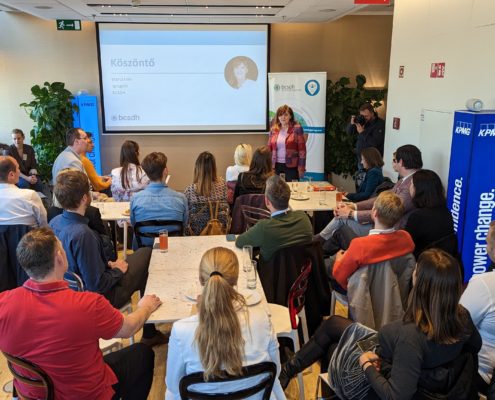
Edina Vadovics, the professional director of the GreenDependent Institute, presented their work regarding the “1.5-degree lifestyle”. Through the results of their research, they explained a number of available lifestyle options that we ourselves can use to reduce the carbon footprint, thus achieving the 1.5-degree climate goal. For this purpose, the “Climate Puzzle” board game was also created, which shows in an insightful way how the modifications in different areas of our lives – such as housing, food consumption or transport – contribute to achieving your own “1.5-degree” lifestyle, and how much we still have to do to achieve our individual goal.
 |  |
Julianna Nagy, Senior Manager of KPMG ESG & Sustainability Services, presented KPMG’s “Me, My Life, My Wallet” research, which examines the role of sustainability in purchasing decisions and defines customer groups based on this. She presented the main characteristics of the habits and values of each group member, and also shed light on which groups were most sensitively affected by the recession last year. Ágnes Deme, Manager of KPMG ESG & Sustainability Services, guided the participants in a playful way through the series of questions, from which they found out which of the customer groups they met were the most important based on their values and purchasing decisions.
 |  |
After the presentations, an informal discussion followed, which gave the opportunity to think further about what was said, to try the board game and to network.
 |  |
Although the individual is a very small element of the big machine, it is still of great importance: with their values, decisions, and shopping habits, they contribute to the whole in the present; and they create new standards, expectations, and demands for the future, which affects producers, manufacturers, and service providers. Last, but by no means least, who would be the most efficient operators of the engine of sustainability, if not personally committed individuals?
Photo gallery >>

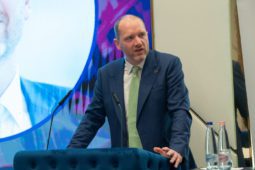
The world’s most pressing challenges include the climate emergency, rapid biodiversity loss, dramatically growing social inequality, and the focus on assessing corporate performance from an economic perspective only. We are running out of time, and these four areas require immediate measures, action, and systemic change, alongside commitment at the highest level.


“We cannot achieve net zero without business action to halt and reverse nature loss. Nature represents a third of the climate solution, and biodiversity loss is accelerating. Every business depends on nature, with opportunities to invest in nature-based solutions which drive the transformational change that we need”, – stated Diane Holdorf, Executive Vice President of WBCSD, who represented the business world at the UN-initiated COP15 on biodiversity, where an important international agreement was reached for the preservation of biodiversity.


Katalin Sipos, Country Manager of WWF Hungary, summarized the domestic situation and discussed possible solutions.
“Due to the incredible technological development of humanity, we have become accustomed to seeking technical solutions for almost everything. However, hi-tech is not always the wisest choice – for the sustainability transition, we need cultural and value changes, as well as low-emission, low-tech solutions. And for some environmental problems, the simplest and most ancient solution is the best: nature itself as the solution”, – said Katalin Sipos in her presentation, emphasizing that climate commitments cannot be made at the expense of nature, but rather the change must be genuinely systemic, and built upon nature.
Nature is essential for creating a healthy humanity, a healthy business life, and a healthy planet. Climate, biodiversity, and water are all part of the same system, are closely interconnected, and no element can be separated from the others, as they are in constant interaction.


“More than half of the world’s GDP depends on nature and its services. That means it affects all of us, whether we know it or not, so everyone must act. That is why we have placed this topic in the focus of our professional program for 2023. We need systemic changes instead of isolated measures, which require deep and comprehensive cooperation among the business community, scientific experts, political decision-makers, investors, developers, and consumers. We believe that the business sector must take a leading role in achieving this desired rapid change”, – said Attila Chikán Jr., President of BCSDH, in his opening speech.
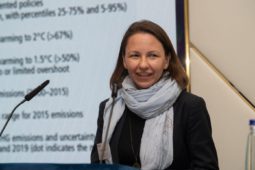



Following the presentations, company executives and corporate, scientific and civil experts discussed the current state and challenges of biodiversity, water and climate adaptation and revealed many business best practices and solutions at a closed-door forum.

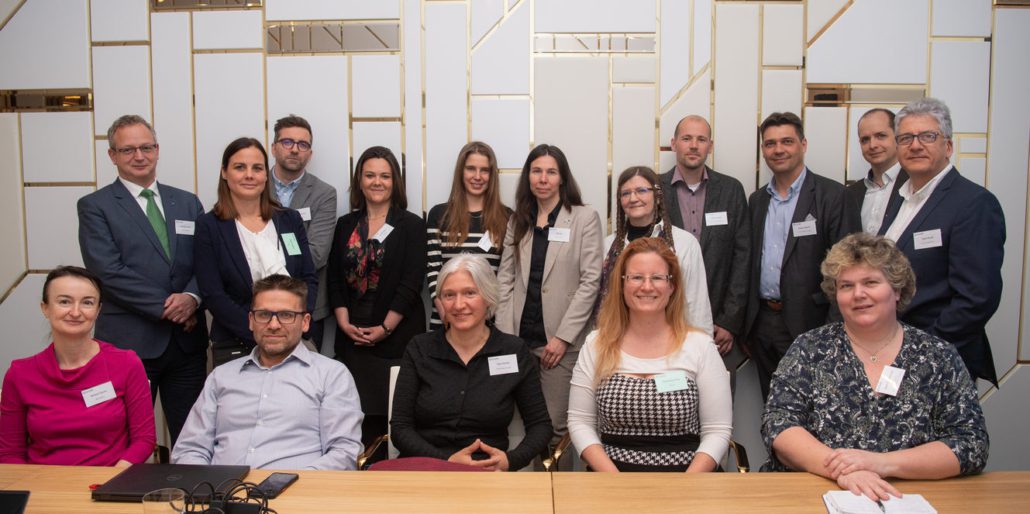

The Business Council for Sustainable Development in Hungary (BCSDH) has developed into a leading organization for corporate sustainability, now representing the top executives of 133 responsible companies in Hungary. At its general assembly, held at MOL Campus, member companies accepted the ‘Sustainable Business Management Guidelines’ thereby expressing their desire to lead by example as well as manage their companies accordingly.
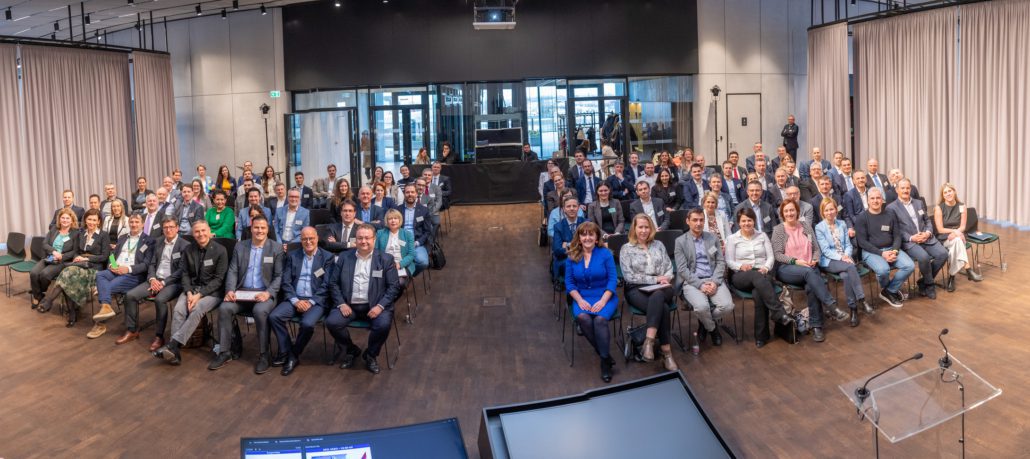
The ‘Sustainable Business Management Guidelines’ comprehensively outline how a sustainable company should operate. Our aim in creating the Management Guidelines was to provide guidance for corporate leaders in Hungary in terms of sustainable corporate governance. The members of the BCSDH are responsible leaders of leading companies in this area, who, by signing the membership agreement, undertake to accept these guidelines and are committed to leading their companies in this direction,” said István Salgó, BCSDH’s honorary president, who oversaw and supported the entire process with his expertise.


‘The ‘Sustainable Business Management Guidelines’ were developed in line with the system of criteria of our parent organization, the WBCSD, based on our Recommendations for Business Leaders and as part of our Time to Transform 2030 program. To monitor the progress of our members in this process, we track their results annually through our maturity survey. Our goal is to assist them by identifying areas for development and showing them best practices that will help them achieve real change and accelerate the process,” added Irén Márta, the organization’s executive director, after approval of the BCSDH 2022 report.


The BCSDH has defined its goal for 2023 as supporting its member companies and the business sector to achieve climate-neutral operations, restore biodiversity, promote an inclusive, equitable, and diverse corporate culture and operations, and fully respect human rights in business. The organization also aims to promote the highest level of transparency.


“Now is the time for action. Along with our 133 corporate members, we believe that small steps are no longer enough, and immediate change is needed in poorly functioning systems. We believe that the corporate sector must lead these changes. Those who act earlier will clearly be less affected by external factors such as rising energy prices or supply chain disruptions. Transformation requires a mindset change that fundamentally alters business leaders’ short- and long-term thinking and decision-making. It is important for BCSDH to have a highly committed community of companies and business leaders, which is why the widespread adoption of the Sustainable Business Management Guidelines is a significant step.” explained Attila Chikán Jr., president of BCSDH.
















This intention is supported by our professional short-term and long-term work. The Time to Transform 2030 program, which will define the decade, was launched to accelerate systemic transformation, including the Race to Zero initiative, which will help the Hungarian economy become climate-neutral by 2050, the Circular Economy Platform, which aims to accelerate the transition to a circular economic model, and the ESG working group, which will prepare member companies to comply with stricter regulations through knowledge sharing. The “Future Leaders” Talent Program, now in its tenth year, continues to lend support and is a much-needed program for ensuring that as many business leaders as possible understand the Sustainable Business Management Guidelines and incorporate them into everyday business operations.
![]()
Business Council for Sustainable Development in Hungary
1118 Budapest, Ménesi street 9/a.
Policies and statements
Privacy policy
Competition Law Statement
Code of Ethics
World Business Council for Sustainable Development (WBCSD) National Partner
